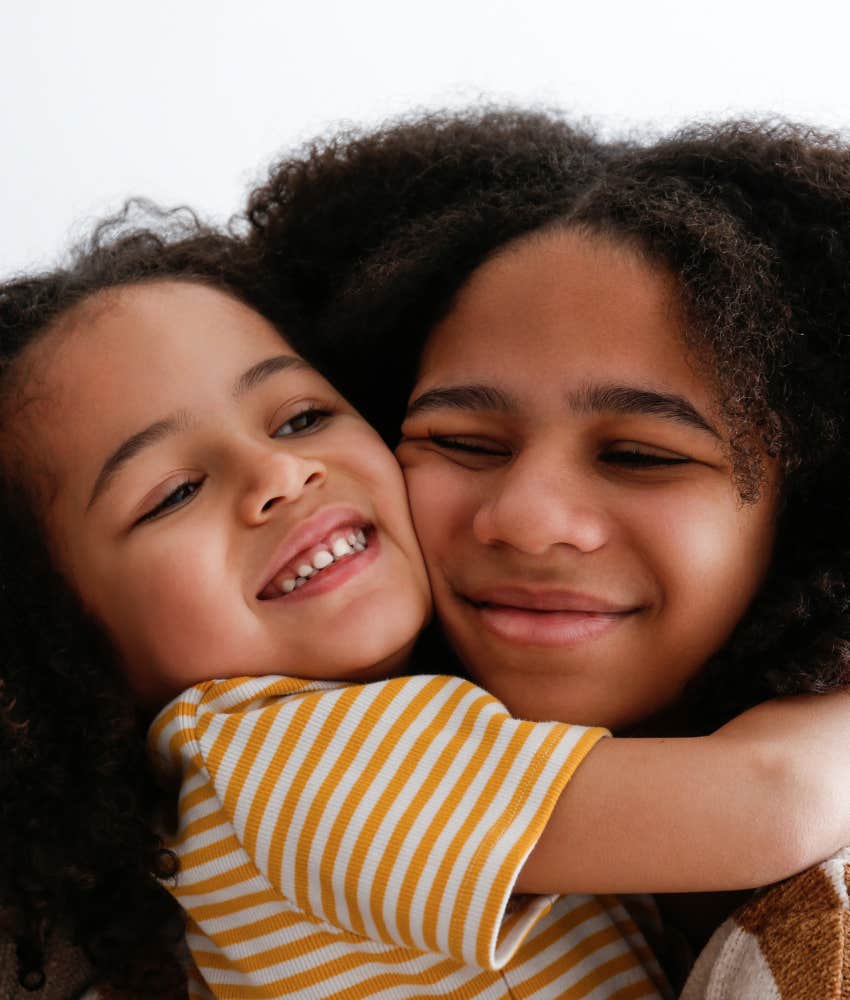People Who Grew Up Watching Their Parents Do These 6 Things Know How To Set Boundaries As Adults
 LOOK | Canva
LOOK | Canva As an adult, I learned how to deal with bullies and boundaries during my own inner upheaval. Someone close to me was determined to find every hot button I had and push it like a remote control. I was helpless. Every text message had to be responded to, and each comment commanded a reply.
I wanted peace and tranquility, but I couldn't figure out how. As much as I heard I needed to "Let go, and let God," I couldn't. Then, it happened. My younger children and I were out on a play date with some friends, and one of the children started instigating. There were small verbal cues of a fight.
Suddenly, both my children were in an emotional upheaval. I saw examples of my battle in their war cries and realized if I didn't make some serious changes in my coping tactics, I was going to pass the torch on to my children. I started to take responsibility for my reactions and used my experience to remind myself why it was so important not to pass on the same dysfunctional behavior to my kids.
Like a parenting sports coach, I called out plays.
- "Don't bite the hook."
- "Focus on yourself."
- "Don't divide your allegiance."
Little by little, new hooks presented themselves through playmates that could lead to potential arguments and situational crises. Each time, I discovered my children became more aware of how to enforce boundaries.
People who grew up watching their parents do these 6 things know how to set boundaries as adults:
1. How to recognize bad behavior
I started to see patterns of behavior in childhood bullies and their victims that I encountered with adults.
- The Instigator — A person who triggers an emotional reaction that often hits someone's 'unfair' button. The person who reacts looks out of control, and the instigator gains a sense of power while another child learns to feel helpless.
- The Scapegoat — The scapegoat often ends up being blamed for things and usually is the most sensitive person in the group. The scapegoat is frequently the target of an instigator.
- The Savior — This is the person who ultimately receives the emotional reward from resolving the problems that arise and often enable the instigator.
At first, like me, they felt things were out of their control, and they ran through the roles of instigator, scapegoat, and savior. Like me, they couldn't see the part they played in the interaction. Then a victory would encourage insight.
The next thing I knew, both my son and daughter were using words to encourage each other to detach, refocus, and divert their attention to other things when the red flags started waving. They started to make power moves like playing with someone else or choosing their own company, instead of sacrificing their wants and needs because of the fear of being alone.
2. How to say no
 fizkes via Shutterstock
fizkes via Shutterstock
It's OK to say no and to stick to a boundary. Just because one person has a boundary doesn't mean everyone has the same boundary. A parent can encourage concrete, firm boundaries that keep things from getting awkward.
For example, if you have someone coming over to do a play date, but you know your child doesn't like to clean their room, don't let the play date happen in the bedroom. If your child starts to give in and ask if they can change the rule, don't allow it. Your child will learn to set boundaries and start to appreciate the rules, and you'll see them become applied to other areas of their lives with family, at school, and with friends.
3. How to mind your own business
Children like to please one another, and sometimes this means getting disappointed when another child feels selfish. Teaching a child to focus on their own thoughts, feelings, and reactions and take responsibility for their own entertainment is a great way to gain emotional power and teach it. If there's a time when someone tries to instigate a problem, a child who learns how to stay focused internally becomes a boring target.
4. How to walk away
The hardest thing to do when a child feels like things have become unfair is to step aside. But it's the first thing a child must learn to do when they feel like quarreling. This same attitude can be applied when having to deal with a toxic adult.
Your child (and you!) can also learn that stepping aside doesn't always mean physical space. It can mean mentally checking out and thinking of a happy story or a place they love. The moment a child can learn to do this, the stronger their emotional resiliency becomes.
5. How to respond with kindness before things escalate
 evrymmnt via Shutterstock
evrymmnt via Shutterstock
Obviously, this does not apply to being hit, bullied, or abused by others. This is merely for situations where an argument will get them nowhere. Teaching a child to simply respond with "Thank you for sharing" often shuts down a bully or someone who has nothing nice to say.
It's hard to keep shelling insults to someone who is thanking you for your nastiness. If a child asks why they should thank a friend who has turned foe for sharing their rotten side, remind them that knowing a hard truth is always better.
6. How to pay attention to feelings
Give permission for your child to discuss what happened, how they feel, and to overreact and cry at home with you in safety and comfort. When a child knows they can let it all out later with you, they will be less likely to need to let it all out at the moment.
Also, it's a great opportunity to teach why pausing to reflect is important when a crisis hits. It's also important to recognize when a friendship is toxic and not in the best interest of your child's emotional well-being. And the same thing goes for you. You both deserve peace and to feel safe in your relationships.
Aria Gmitter is YourTango's Senior Editor of Horoscopes and Spirituality. She graduated from the Midwestern School of Astrology and has been a practical astrologer for 40 years.

